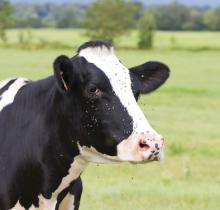Flies are notorious for causing problems to cattle both by their nuisance factor and by transmitting diseases between animals.
In the UK there are at least 20 species of fly which feed on cattle. Different species of flies feed on different secretions or tissues. Some pierce the skin and feed on blood; while others feed on sweat, skin secretions, saliva, or tears (some flies also feed on urine or faeces).
There are two ways in which flies cause harm to cattle:
1) Nuisance
Animals which are exposed to a high fly challenge can become extremely aggravated and may cause injury to themselves, other animals or even those handling them e.g. kicking in the parlour. The evasive behaviour taken by the animals to try and alleviate the irritation caused by flies’ results in less time feeding, causing reduced productivity.
2) Spreading Disease
Flies can act as vectors meaning that they have the ability to spread certain diseases between animals by biological or mechanical means.
Biological transmission occurs when the fly is carrying the pathogen internally, usually from a blood meal for example Bluetongue virus carried by the Culicoides midge.
Mechanical transmission occurs when pathogens are passively transferred by the fly from one animal to the other. The spread of ‘new forest eye’ bacteria from one animal to another demonstrates this form of transmission.
To discuss this further, please call the practice and speak to a member of our farm team - 01363 772860.


